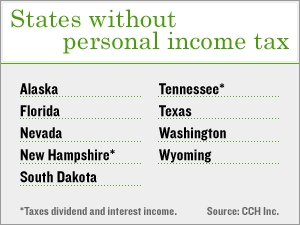Note to Readers:
This is a follow-on article to my two other income tax related articles of this year – Tax Time, 2014 Style and Tax Time Continues . . .. While I didn’t intend to turn Tuesdays into “More Tax Articles Day” here at Live in the Philippines, it sure seems like it. Mea Culpa! We should be returning to some less boring / more interesting “stuff” next week. For now, I ask your indulgence.
FUAQs???
As I had mentioned in an earlier article, I really do have a virtual storehouse of tax-related questions and their related answers. As we are now “officially” in “tax filing season,” those Qs and As become quite relevant and, not surprisingly, similar Qs keep showing up in my inbox. Additionally, experience has taught me that for every question asked, over ten questions go un-asked. Most of those ten are closely related to the question asked, only differing on a personal note.
 With the genesis of the Internet, the World Wide Web and Websites galore came a method of getting information “out there” that was based on the Web surfer’s curiosity. Though not really unique to the Web – this platform has been around, in one form or another, for at least as long as man had a question – it has certainly flourished there. It’s the “Frequently Asked Questions” or “FAQs” platform, and it handled those questions that were asked. So, what about those ten plus that aren’t? That’s where my “FUAQs” steps in: “Frequently Un-Asked Questions” need their exposure, too!
With the genesis of the Internet, the World Wide Web and Websites galore came a method of getting information “out there” that was based on the Web surfer’s curiosity. Though not really unique to the Web – this platform has been around, in one form or another, for at least as long as man had a question – it has certainly flourished there. It’s the “Frequently Asked Questions” or “FAQs” platform, and it handled those questions that were asked. So, what about those ten plus that aren’t? That’s where my “FUAQs” steps in: “Frequently Un-Asked Questions” need their exposure, too!
Thus it’s FUAQs (pronounced, “fwacks”) supporting the FAQs (pronounced, “facks”). Kinda cute, I’d say.
HEY, PAUL, LET’S HAVE THE FUAQs, HUH?
 Okay, here we go. This article will deal with the question discussed last week regarding state income taxes and what residency status means in paying state income tax.
Okay, here we go. This article will deal with the question discussed last week regarding state income taxes and what residency status means in paying state income tax.
Q. I read what you wrote last week, and I’m still confused. Discussions with fellow ex-pats over early morning coffee is all about taxes this time of year. Many of my fellow ex-pats believe that one “has to be” a resident of a state with regard to taxes, and it’s best to do whatever you can to show that you are a resident of a state that doesn’t have individual income taxation. How do you square with that?
A. Before we go too much further, we’ll have to establish some facts about state income taxes to help ease the sting of your fellow ex-pats’ speculations. Tax agencies, be they the IRS or the various state and local tax agencies, are feared by most taxpayers. That fear brings on speculation of various tax-related requirements which often end up deferring to the tax agency whenever doubt or confusion exists. Often this speculation and deference results in inaccurate or bogus factoids being spread around as “gospel.”
Here are some facts that you should know and refer to whenever discussing state income taxes:
- Every state that has an individual income tax (43 at last count) is different – in name, in size, in location and, most importantly, in how they administer their state income tax program.
- On average, a correlation can be drawn between a state’s population and the complexity of that state’s individual income tax program.
 States, especially the ones with larger populations, are more aggressive in obtaining individual income tax revenue than the federal government or their less populated counterparts.
States, especially the ones with larger populations, are more aggressive in obtaining individual income tax revenue than the federal government or their less populated counterparts.- Though many states may refer to its population as its “citizens,” such citizens are technically citizens of the United States and not of the state in question.
- In reality, state individual income tax liability is not based on an individual’s citizenship but is based on an individual’s residency status.
- There is absolutely NO REQUIREMENT for a U.S. citizen to be a resident of any state.
With that out of the way, we can continue with answering the question.
As you’ve read in the facts that I provided, a requirement by any governmental agency for a U.S. citizen to be a resident of any state just does not exist. There is no such requirement recorded in writing on the law books within this country, especially within its states. This bit of speculation is based on a twist of what is true: For state individual income tax purposes, every state having such a tax requires everyone to have a specific residency status with regard to that state.
 Now that sounds a bit foolish, confusing, or even like it is far-fetched horse manure, but it is true. Stop to think for a moment. Say you are a resident of the State of Florida, a non-individual income tax state. For each and every one of the 43 states that have an individual income tax (and for those others that don’t) your residency status, by law, is that of a nonresident. After all, a state has to be able to identify who is and who isn’t a taxpayer for that state. They do this via residency status.
Now that sounds a bit foolish, confusing, or even like it is far-fetched horse manure, but it is true. Stop to think for a moment. Say you are a resident of the State of Florida, a non-individual income tax state. For each and every one of the 43 states that have an individual income tax (and for those others that don’t) your residency status, by law, is that of a nonresident. After all, a state has to be able to identify who is and who isn’t a taxpayer for that state. They do this via residency status.
Differences among the states with regard to state individual income taxation is not based on whether or not an individual income tax exists. It is based on what the state deems taxable with regard to an individual’s income. Those few states who “don’t have any state income tax” technically may have one.
Their laws, however, stipulate that they do not deem any part of a resident’s, nonresident’s, or part-year resident’s income as taxable. Yes, believe it or not, state tax laws are written like that – there is always the chance that a state will tax part or all of a resident’s income, so it is easier to change the “what gets taxed” part of the law than it is instituting a whole new section of law dealing with taxation.
A good example of the above statement is the State of Florida. Though a state individual income tax is prohibited by the state constitution, the state did tax individuals on intangible property (investments, dividends, mutual funds, &c.) until 2007. There is always a hook there somewhere, and a wily politician could easily hang something on that hook to be taxed.
One of the more factual websites on the Internet with regard to state individual taxation is that belonging to the Retirement Living Information Center.
THIS WEEK’S TAKE AWAY
Again, not enough time or column space for everything that pertains to the single question asked. However, the important parts were there. They are:
- When it comes to income taxation, all states are different in their administration of a tax program.
- U.S. citizens are NOT REQUIRED to be a resident of any state for income tax purposes.
- Lacking state residency, a U.S. citizen is, by the various states’ tax laws, deemed a nonresident of each state.
While nonresidents of some states may be liable for the associated state’s individual income tax on specific items or income, (e.g., income sourced to that state), some states absolve a nonresident from their individual income tax requirements. Check to see if you are a resident, part-year resident, or nonresident of the state you left and see what tax liabilities you may or may not have. It’s always good to know this – better safe than sorry!
Paul, how about this for a fwack?
Do Americans in Guam pay their federal income taxes to the IRS?
Answer: No, they pay it to the Guam treasury.
How about Puerto Ricans? And, U.S. Virgin islanders? Dunno. 🙂
The U.S. Powerball lottery, though, is played in the U.S. Virgin Islands.
Hi John – The answers to all of your “taxation in U.S. territories and possessions” questions can be found in IRS Publication 570, “Tax Guide for Individuals with Income from U.S. Possessions.”
Just like anything else that is tax related, none of these questions has a simple answer. For example, a simple question like, “Which tax returns do I file?” provides the following:
a) For American Samoa – individuals may have to file a return and pay taxes to American Samoa, to the United States, or both.
b) For Puerto Rico – individuals file returns with both Puerto Rico and the United States; the income reported on each return depends on the individual’s residency status in Puerto Rico.
c) For the Commonwealth of Northern Mariana Islands (CNMI) – Individuals with income from the CNMI will file only one return, either to the CNMI or to the United States, depending on your residency status in the CNMI.
d) Guam – Individuals with income from Guam will file only one return, either to Guam or to the United States; bona fide residents of Guam file returns and pay taxes to Guam, others file returns and pay taxes to the United States. (Note: U.S. return filers may have to include Form 5057 which the U.S. and Guam use to divide the filer’s income taxes.)
e) U.S. Virgin Islands (USVI) – Individuals who are bona fide residents of the USVI will file returns and pay taxes to the USVI. All others taxpayers will source their income to the USVI and/or the U.S. and file the respective returns. (Note: U.S. return filers include a completed copy of Form 8689 which figures out the amount of tax the filer must pay to the USVI.)
Remember, the above is just the answer to one simple question. There are permutations based on various scenarios involving different residency status, different sources of income, earned or unearned income, &c., for each of the possessions.
Here’s your open can, John – some of the worms did escape! 😆
Thanks Paul. A very informative article. I Suppose I’ll be keeping my state residency. Mostly because I want to retain my commercial drivers license. Folks suggest that a new expat have a fall back plan, just in case. That’s mine. Not sure if it’s worth the trouble to try to transfer it to a state with no income tax or not. Sort of depends on what that state requires to establish residency. Ah well. Just another little buerocratic wrinkle to work with.
Take care,
Pete
Hi Pete – A good “Plan B” is always preferable to panic! In this ever-changing world, one never knows when to sit down, stand up, walk, run, &c., until the moment of movement is smack on top of him/her. Having a plan for potential movement resolves just about every issue, save the “when.” Of course, that plan has to be flexible, too.
Keeping your state residency for reasons of retaining your commercial driver’s license is solid, logical thinking. When the license is no longer a need or a desire, then the state residency issue can be revisited.
A U.S. taxpayer who moves overseas would be foolish to “change residency to a state with no income tax.” An honest move to that new residence outside of the USA is residency change enough. The results are the same, tax-wise. Changing residency status in your former home state from “resident” to “nonresident” is what matters.
Lets slow down for the slow ones in the back of the room. That would be me! Not much of Tax guru and numbers guy.
I work for the WI Dept of Corrections. I’m 53 and decided to take an early retirement (In my case: Accelerated Retirement).
I’m moving to the Philippines this year sometime, but not before I get all my ducks in a row. I know what my monthly Retirement check will be, but do they tax this retirement check? Thus, making my monthly income less. My first instinct is – No. However, I need to be 100% sure.
Finally, since I’ll be living in the Philippines am I bound by Federal and WI State Laws to file tax return every year based upon my annual retirement income?
Thank you for your help!
Bill
Hi Bill – I’ll try to slow it down as much as I can. I had a very long response prepared but I erased it and started over.
Q-1. “… do they tax this retirement check?”
A-1. Federal income tax – YES. Wisconsin income tax – MAYBE.
Wisconsin income tax for “qualified retirement plans”:
– Wisconsin residents – pay Wisconsin income tax on the payments receives regardless of their source.
– Non-residents – do not pay Wisconsin income tax on those payments.
– Part-year residents – pay Wisconsin income tax only on the portion of those payments they received while they were residents.
Wisconsin income tax for “nonqualified retirement plans”:
– Wisconsin residents – same as for “qualified retirement plans.”
– Non-residents – pay Wisconsin income tax on those payments to the extent that it is attributable to personal services performed within the State of Wisconsin.
– Part-year residents – pay Wisconsin income tax in the same manner as residents for the duration that they were residents, and in the same manner as non-residents for the duration that they were non-residents.
You’ll have to arrange for income tax withholding when you are going through the retirement process.
Q-2. “… am I bound by Federal and WI State Laws to file tax return every year based upon my annual retirement income?”
A-2. Federal income tax – MAYBE. Wisconsin income tax – MAYBE.
Federal income tax – You are required to file a federal income tax return if your gross income for the tax year exceeds the threshold for filing set by the IRS each year. There may be other reasons you may want to file as well. (See the comments from last week’s article.)
Wisconsin income tax – If your only source of income is retirement income, your requirement to file a Wisconsin income tax return would be based on whether or not the retirement payments are taxable in your specific case (as outlined above) and your Wisconsin gross income exceeds the threshold for filing set by the Wisconsin Department of Revenue each year.
For income other than pensions or retirement plan payments: Non-residents must pay Wisconsin income tax on income that is Wisconsin-sourced only. Residents must pay Wisconsin income tax on all income regardless of its source. Part-year residents pay like non-residents for income received during the period they are non-residents and like residents for the period they were resident.
There you have it. Can’t pare it down much more without making it totally senseless. As you can imagine, there is no “one-size-fits-all” answer to tax questions. Hope this helps.